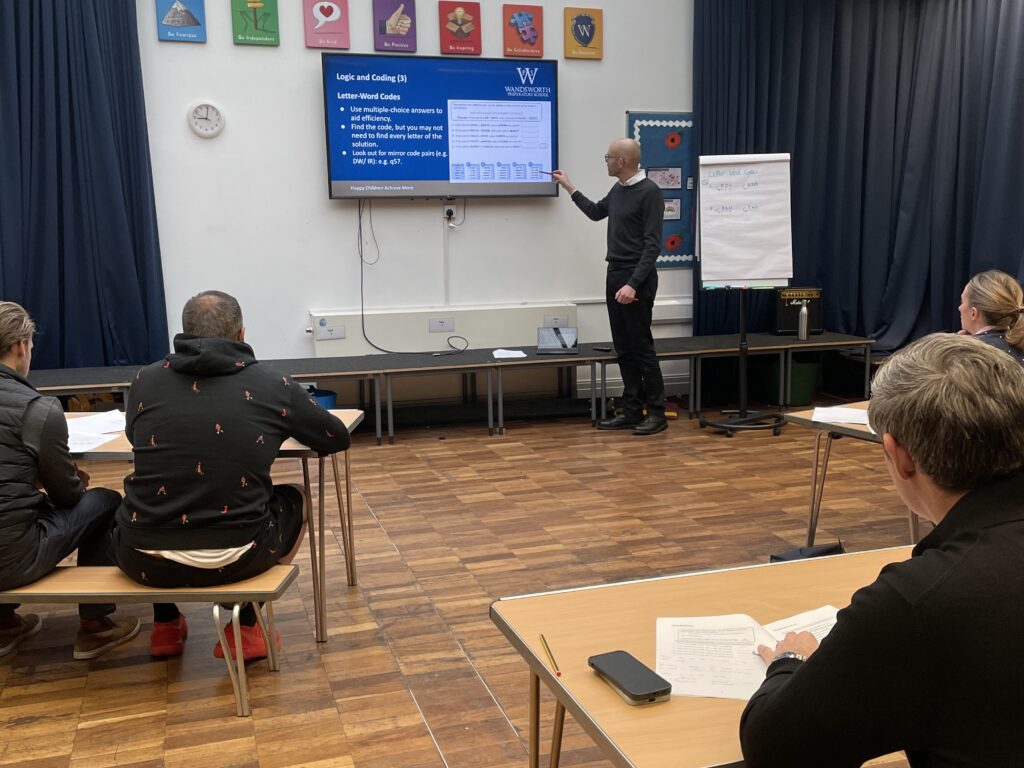Wandsworth Prep recently held two parent workshops on the school’s approach to teaching its pupils the necessary skills for tackling verbal reasoning; this discipline features in a wide range of secondary school entrance exams (including the Wandsworth Test). A further purpose of the workshops was to share with parents what lies ahead on their children’s 11+ journey.
These workshops provide a vital link between different elements of the school community, leaving parents better able to support their children with the different types of questions they will face. For many parents, verbal and non-verbal reasoning may be encountered for the first time when their eldest child faces the secondary school selection process at 11+.
At Wandsworth Prep, we recognise reading is central to success in verbal reasoning. The first session emphasised how success in a considerable proportion of questions revolves around vocabulary. For children to develop an age-appropriate or stretch vocabulary, they need to read widely in a range of genres. At school, a commitment to reading high-quality texts runs through English lessons; this is complemented by the development of a reading for pleasure culture. When children encounter unfamiliar words, whether in class or at home, they are encouraged to clarify their meaning.
For the overwhelming majority of verbal reasoning questions, the answer is on the page; however, vocabulary-related errors are the most difficult ones to eliminate. This obstacle cannot be addressed through addressing exam technique and “cramming” alone.
There remains, of course, a place for strategy and exam technique. The purpose of sharing our taught approaches to different question types is not to supplant something that is already working well for a given child; the strategies discussed provide scaffolded thinking for children who have not yet developed an approach to any or all question types. Here, teachers are aware that there is a temptation for children to focus too much on “spotting” the answer to verbal reasoning questions, rather than finding it by a robust, methodical approach. On more challenging questions, children will need a strategy, not merely intuition.
Where children have not yet developed a successful, methodical approach to tackling certain question types, a consistent approach at home and school will help them to become fluent in one. Through practice and repetition of a logical approach, children will find the right answer or at least give themselves the best opportunity to find it.
By trusting in this process at Wandsworth Prep, working through all possible answers where necessary, children can hone their strategies and become speedier in their use. Ultimately, this should save time as children have a clarity of thought on more difficult questions, especially under high-stakes exam conditions.



